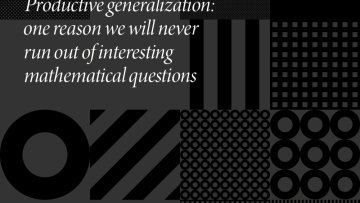16:00
Number fields with prescribed norms
Abstract
Let G be a finite abelian group, let k be a number field, and let x be an element of k. We count Galois extensions K/k with Galois group G such that x is a norm from K/k. In particular, we show that such extensions always exist. This is joint work with Christopher Frei and Daniel Loughran.


